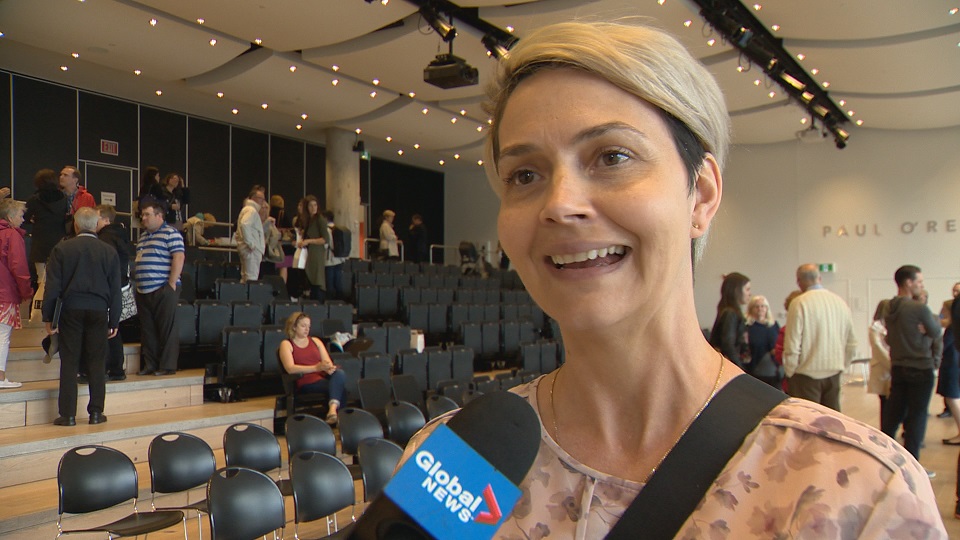Many of those who attended an inherited heart condition conference in Halifax on Saturday are living with unspeakable emotional pain. Families eternally grief-stricken with the death of their child due to a genetic heart condition they had no idea existed.

READ MORE: N.S. father who lost son urges 911 callers be directed to locations of life-saving device
Searching for hope in the words of North American experts in the realm of cardiac health.
“Our daughter Emma has been diagnosed with an arrhythmia. It’s actually genetic,” said Lynn Power, a New Brunswick woman who drove to Halifax to attend the conference.
“She had three syncope’s at school and that was during gym, during physical activity, also during a fire drill so we have to avoid emotional stress and any competitive sports from now on.”
Power’s story is one of the dozens that filled the Halifax Central Library to hear from an expert panel.
The forum was made possible through charitable donations through the Jordan Boyd Celebrity Hockey Challenge, an annual event held in memory of 16-year-old Jordan Boyd, a talented hockey player who died from an undetected and undiagnosed rare heart condition.
READ MORE: Hockey league to improve safety in light of 2013 death of 16-year-old player

Get weekly health news
“The world of inherited heart disease is a complicated one and part of the issue is that their rare diseases that many people have never heard of but the stakes are really high because the diseases that affect young people and predispose them to dying suddenly,” Dr. Ciorsti MacIntyre said, a cardiac electrophysiologist at the QEII Health Sciences Centre.
One of the world’s leading experts in genetic heart conditions, Dr. Michael Ackerman, attended the conference as well.
He says there are many challenges in identifying warning signs of inherited heart conditions because there aren’t one or two indicators that are sure signs of a red flag.
“Genetic heart conditions that predispose to sudden cardiac death are far more common than what the average person would understand and the symptoms that overlap, overlap with incredibly common symptoms. So, if we were to put out there a statement that a symptom that’s a warning sign of sudden death is, have you fainted? Well, that would be awful to say that because one in three of us will have fainted before our 25th birthday,” Dr. Ackerman said.
One type of fainting, however, shouldn’t be overlooked according to experts.
“I think one of the things we really have to work towards is helping the front lines of medicine know what those warning signs are. So, the exercise faint, making that put up a red flag and say, wait for a second, we need to look into this, we need to pay attention and dig deeper because if we’re lucky enough to have that warning before the cardiac arrest than that’s our opportunity to intervene,” Dr. MacIntyre said.





Comments